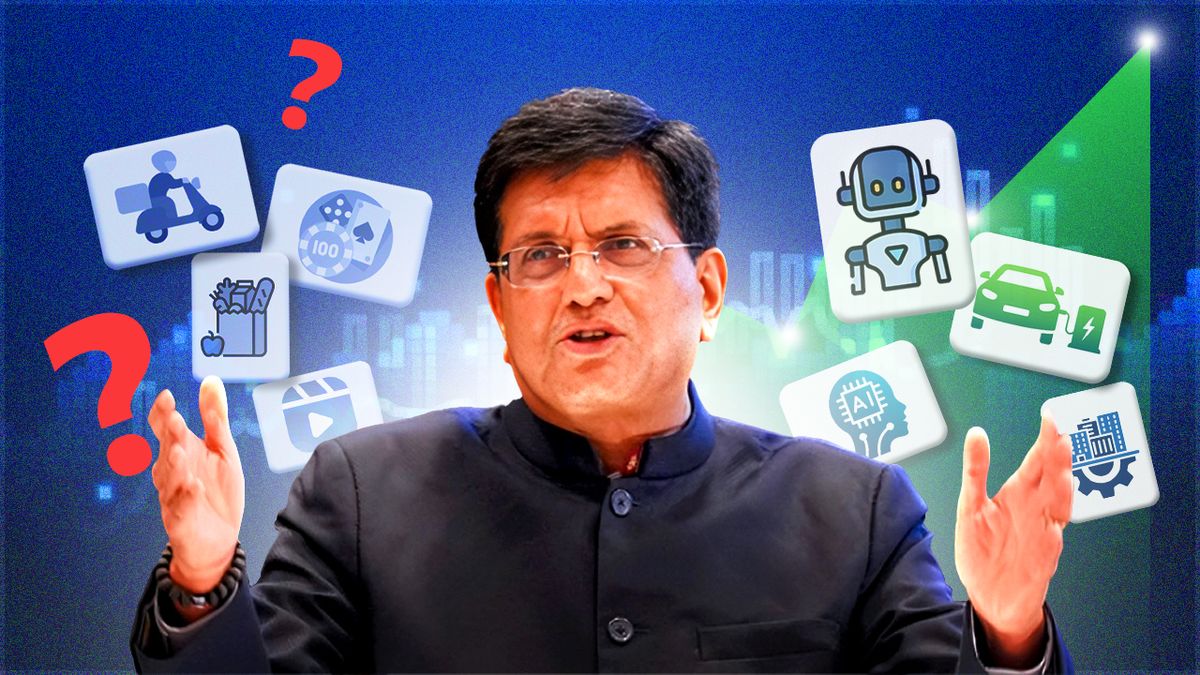India’s Startups and Innovation: A Comparison with China
App forwards typically do not ignite serious discussions within India’s startup landscape, yet one recent forward generated considerable attention and upset many within the community. During his keynote presentation at Startup Mahakumbh in New Delhi, Commerce Minister Piyush Goyal showcased a viral piece that juxtaposed the current state of Indian startups against those in China.
Goyal, generally hailed by Indian startup founders and investors, encountered robust backlash from various stakeholders after making this comparison. Prominent figures such as Zepto co-founder Aadit Palicha and veteran investor Mohandas Pai were among those publicly and privately expressing their criticism towards Goyal.
But what triggered such a swift negative reaction within the ecosystem? While it is evident that Indian food delivery and quick commerce enterprises have exhibited remarkable innovation, efficiency, and job generation while securing billions in foreign direct investment, the nation still falls short compared to China and the U.S. in critical sectors including deep tech, electric vehicles (EVs), and semiconductors. This disparity appears to widen over time.
Why, then, did the Minister’s call for heightened innovation resonate poorly with many stakeholders? Was it complacency? Unlikely. There are numerous founders in India vigorously developing deep tech, hardware, robotics, and other advanced enterprises, with several poised to stand alongside their global contemporaries from the U.S., China, and Israel. Goyal mentioned that many were at work, although he deemed the number insufficient, possibly aware of the sector’s challenging survival rates.
Those stakeholders who felt offended by Goyal’s statements may have acted prematurely. Goyal did not disparage food delivery or quick commerce firms; in fact, he recognised hyper-fast logistics as a form of innovation. His intent was to encourage the ecosystem to strive for greater heights. Furthermore, the content of the comparison was not generated by Goyal; he clarified that it was a forward shared by a friend, which he referenced spontaneously during his speech to motivate both emerging and established entrepreneurs. Unfortunately, many media outlets misrepresented the creative as his own.
Goyal’s remarks should be contextualised within the backdrop of various recent reports from China, highlighting the significant advancements made by firms in high technology sectors, such as semiconductors and foundational models. These firms have successfully caught up with, or in some cases surpassed, the West, especially in the realm of EVs and batteries. In comparison, Indian startups seem to seek validation primarily from a select group of VCs and influential voices within the local ecosystem, or through public listings, often benefitting from considerable hype and inflated valuations with little subsequent achievement.
As an entire ecosystem, it is essential to remain receptive to criticism and feedback rather than responding impulsively to uncomfortable truths. The harsh reality is that India continues to lack a sufficient number of genuinely innovative startups in deep tech, hardware, and artificial intelligence. It is important to appreciate that the government, typically a supporter of startups, opted this time to provide a reality check.
Such constructive criticism ought to be viewed not as an insult but as a chance for introspection and enhancement. Credit goes to Piyush Goyal for courageously making a comparison with China—an action that the government tends to avoid.
